Share
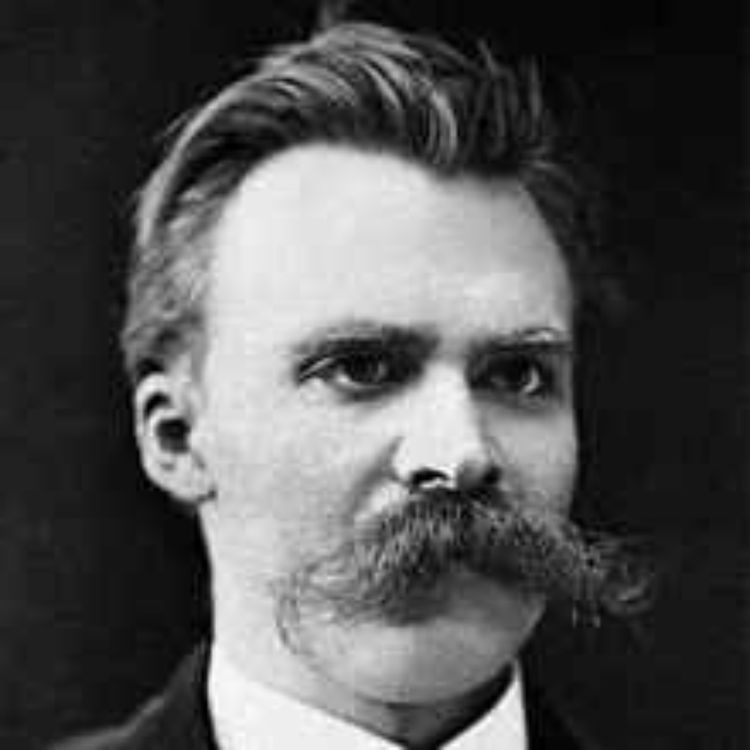
Continental Philosophy
Lecture9: Nietzsche and Eternal Recurrence
Nietzsche’s theory of eternal recurrence is the most difficult, most obscure, and most fragmented of all of his philosophical proposals. It has been interpreted in a variety of ways by a variety of different philosophers and in the end, there is no real consensus on its value, interpretation or remit. Furthermore, the theory is unfinished and not fully worked out, and was likely to contribute to the non-book The Will to Power. What I am going to attempt here is a reconstruction. If eternal recurrence is to be presented as consistently as possible, I need to explain it cogently as I can, as well as tie it together to other core concepts of Nietzsche’s thought. But before that, we need to try and figure out exactly what Nietzsche means by eternal recurrence.
These lectures are brought to you by Staffordshire University's Philosophy team. Come study on our MA in Continental Philosophy via this link. Or, join our MA in Philosophy of Nature, Information and Technology via this link. Find out more about me here.
More episodes
View all episodes
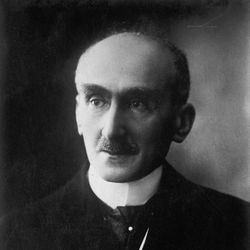
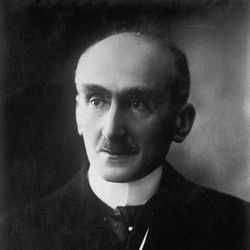
Henri Bergson on Creative Evolution
28:39|In Henri Bergson’s bestselling 1907 book Creative Evolution (Évolution créatrice in French), Bergson attempts to make his theory of duration speak to evolutionary science. Charles Darwin’s theory of evolution would seem to be diametrically opposed to what we have heard of Bergson to date. Evolution has space and environment emphasised over time, we see deep, long, quantified time emphasised over duration, and we see emphasis on external material determinants rather than inner purposiveness. Bergson though thinks that this basic Darwinian picture is somewhat lacking and needs to be supplemented with a philosophical theory. And that is what Creative Evolution is, it is a philosophical theory which makes material evolution intelligible. Creative Evolution itself then – and these are the themes I turn to in this lecture – offers a fortified theory of evolution, where what Bergson calls finalist and teleological forms of life are consolidated with a Bergson’s own theory of futural direction. As well, Bergson suggests evolution requires a theory of the unconditioned (free) emergence of organisms. And finally, Bergson wants to challenge our picture of evolutionary development. We typically take the development and change of matter to be ordered, quantitative and measured over time. Bergson thinks in doing so, we conceal the necessity of disorder and contingency for the emergence of life. Bergson’s idea is that, free, and unpredictable creativity is a necessary condition of evolutionary change. So, to be clear, Bergson on this own terms, is not repudiating evolutionary change he is perfecting it.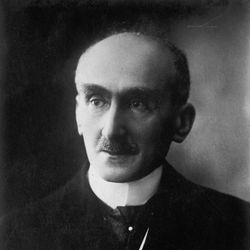
Henri Bergson on Matter and Memory
28:53|In the last lecture I spoke about Bergson’s radical distinction between space and time, quality and quantity, duration, and extension. In another of Bergson’s major works Matter and Memory Bergson builds on the insights of his earlier work, this time in the context of memory. Now, when we think of memory, usually we consider it to be a psychological concept. It is a type of thinking located in the mind pertaining in some way to a retrieval of the past. Bergson thinks this is true, but only tells a very small part of the story. In fact, Bergson actually thinks that memory, and the way it works is indicative of something much deeper, broader, and metaphysically more interesting. So, Matter and Memory offers us an exploration of how the relationship between time, matter and memory unfolds. More specifically, Matter and Memory offers fresh and detailed descriptions of different types of memory. For example, Bergson talks about the function of body memory or habitual and muscle memory. As well, he talks of things like episodic memory, processual and memory-image. In this lecture, I aim to explain the ways Bergson’s account of memory maps onto his theory of duration. Doing so will allow me to explain how he conceives of the operation of memory, how Bergson thinks the mind relates to the body, and how conscious memory relate to unconscious bodily memory in the form of habit. But also, how the mind is always more than just mind!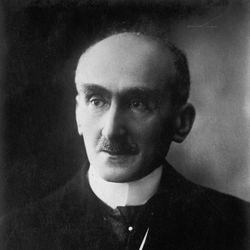
Henri Bergson on Time and Free Will
35:56|Henri Bergson is one of our most significant vitalist thinkers who from the late 1800s until his death in 1941 offers one of the most sophisticated modern versions of vitalism. His work is constructed as a reaction to variety of strains of rationalist thought as found in the likes of Charles Darwin, Herbert Spencer, and Auguste Comte. In contrast, Bergson emphasizes themes of life, vitality, duration, creativity - themes which he developed in a collection of works famed for their prose style and his use of metaphor and imagery. Notably, Bergson would win the Nobel Prize for Literature in 1928. His work is famed for a recursive expression of life itself. His writings are not strictly representation of his themes, they are written to express what life itself is. We can find the common denominator of many themes of his work in his 1889 work Time and Free Will [Essai sur les donnes immédiates de la conscience – Essay on the Immediate Givens of Consciousness (roughly)]. In this lecture then I will explain the core themes of Time and Free Will. I will begin with a short biography of Bergson to give you a sense of the man. Subsequently, I will talk about the overall core themes of time and free will, Bergson’s famous distinctions between time and space, the qualitative and quantitative, his theory of duration and how that tells us about why the human being is fundamentally free.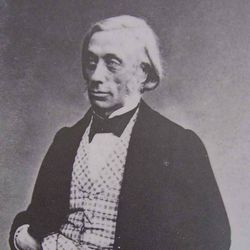
Félix Ravaisson, Habit, and the Metaphysics of Life.
28:22|The reason Félix Ravaisson is worth studying is because in his work we find a confluence of themes from Aristotle, debates in 18th and 19th century French vitalism, or spiritualism as it was called then, and a foreshadowing of European Philosophy in the 20th century. His most well-known works of the time were on the history of philosophy, works such as Essay on Aristotle’s Metaphysics (1837), French Philosophy in the 19th Century (1867) and The Philosophy of Pascal (1887). His original philosophy can certainly be detected in these engagements with key figures in the history of philosophy, but his most significant work is found in the published doctoral thesis of 1838 Sur L'Habitude [Of Habit] and the long article Métaphysique et morale [1893- Metaphysics and Morals]. We will focus here on the essay Of Habit, taking up themes of being, time and space and the formation of habits as consequences of an active and passive principle, or the double law of habit as Ravaisson calls it. Episode Image: Rémi Mathis, Public Domain.
A Short History of Vitalism
19:29|This podcast provides a short history of the philosophical theory of vitalism. Vitalism is a set of philosophical propositions claiming that matter is not foundational, that the material world cannot be described in reductive terms. Put positively, vitalism proposes the existence of principles not found in inorganic matter nor nature. Or if we think about it in biological terms, living things, that is living organisms, have vital forces that actively contribute to arranging any organism’s material constituents. I look at the roots of vitalism in Aristotle, how vitalism continued in the 18th and 19th century, the repudiation of vitalism by twentieth century biology, as well as the resurgence of vitalism in the 21st century in philosophers such as Gilles Deleuze, Karen Barad and Jane Bennett.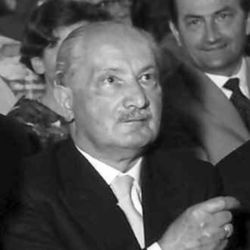
Lecture 12 - Heidegger on Science
37:05|This week we talk about what Heidegger has to say about science. This is a useful topic to conclude with because the theme of science straddles both the earlier and later Heidegger. In Being and Time Heidegger speaks about the nature of science as what he famously calls a ‘regional ontology’ which I will mention here. In his later work, Heidegger in such essays as “The Age of the World-Picture” and “Modern Science, Metaphysics and Mathematics” Heidegger speaks about how, in contrast to the common view that technology and industry are applications of technology, science is inherently technological. In this lecture then I will explain this proposition, and I will explain what Heidegger means by ‘regional ontology,’ and what Heidegger has to say about the technological determination of reality which science unleashes. In his lectures What is Called Thinking Heidegger puts forward, what he deems to a shocking and scandalous thought: ‘Science does not think.’ And it is rather shocking, why on earth would scientists not be able to think? These lectures are brought to you by Staffordshire University's Philosophy team. Come study on our MA in Continental Philosophy via this link: Or, join our MA in Philosophy of Nature, Information and Technology via this link:. Find out more about me here. January and September intakes available either F/T or P/T.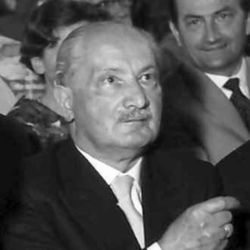
Lecture 11 - Heidegger and Architecture
30:50|This week we look at another of Heidegger’s preoccupations in his later philosophy: architecture and dwelling. While buildings, like the Greek Temple are present in Heidegger’s other work from the later period, he has only one short essay – “Building Dwelling Thinking” – which directly tackles the question of architecture. This essay was originally given as a lecture at a 1951 conference in Darmstadt, which was directly responding to the post-war housing crisis after WWII. It is an enigmatic essay, no doubt, and a good example of Heidegger’s late ocular prose style. But at its core there is quite a simple idea, we have forgotten how to dwell, or to live well with our abodes. We have started to think of homes as technological and instrumental rather than existential. In the following then I explain how Heidegger looks at how building has become separate form dwelling, what Heidegger means by the fourfold, and how Heidegger conceives of dwelling as spaces for living in.These lectures are brought to you by Staffordshire University's Philosophy team. Come study on our MA in Continental Philosophy via this link: . Or, join our MA in Philosophy of Nature, Information and Technology via this link:. Find out more about me here. January and September intakes available either F/T or P/T.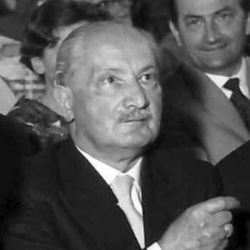
Lecture 10 - Heidegger and Technology
40:56|This week I want to explore Heidegger’s main points in his essay the "Question Concerning Technology." It is worth noting that while the essay is relatively short it can in parts be obscure. The essay devotes a lot of time to etymological exposition so as to unpack how or understanding of technology has changed throughout history. Heidegger’s primary argument is that modern technology, not technology per se, has done two things. Firstly, it obscures or makes us forget the question of Being. Secondly, modern technology also induces in humans a metaphysical transformation. This is to say it changes what we are. These lectures are brought to you by Staffordshire University's Philosophy team. Come study on our MA in Continental Philosophy via this link: . Or, join our MA in Philosophy of Nature, Information and Technology via this link:. Find out more about me here. January and September intakes available either F/T or P/T.